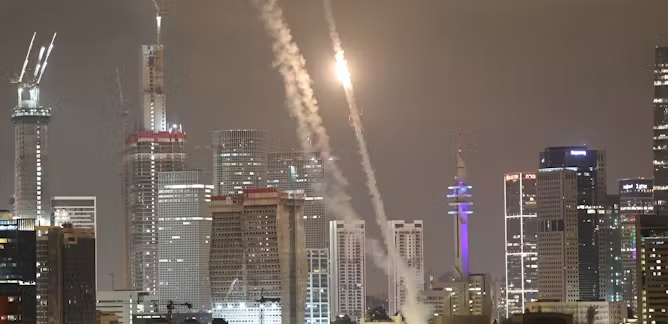Netanyahu’s Dual War Objectives: Nuclear Disarmament and Regime Change
Israeli Prime Minister Benjamin Netanyahu has made no secret of his two primary war objectives: the destruction of Iran’s nuclear program and regime change in Tehran. These aims have shaped Israel’s strategic posture in the region for years. Yet, the feasibility of achieving either goal remains a matter of intense debate among military experts and international analysts.
The Nuclear Threat: Israel’s Existential Concern
For decades, Israel has viewed Iran’s nuclear ambitions as an existential threat. Netanyahu has consistently argued that a nuclear-armed Iran would destabilize the Middle East and endanger global security. Efforts to halt Iran’s nuclear program have ranged from covert operations and cyber warfare to diplomatic pressure and the threat of direct military action.
Iran’s Nuclear Progress Persists Despite Pressure
Despite these efforts, Iran’s nuclear program has advanced. Reports from international monitoring agencies indicate that Iran’s enrichment capabilities have expanded, and its stockpile of enriched uranium has grown significantly. The question remains: can Israel truly destroy Iran’s nuclear infrastructure without sparking a full-scale regional war?
The Regime Change Dilemma
Alongside the goal of dismantling Iran’s nuclear capability, Netanyahu’s government has pursued regime change in Iran. The hope is that a new government in Tehran would abandon nuclear ambitions, end support for proxy militias, and integrate more constructively into the international community. However, history shows that regime change is rarely straightforward and often comes at a high cost.
Obstacles to Overthrowing Tehran’s Leadership
Achieving regime change would likely require a combination of internal dissent, external pressure, and perhaps direct intervention. Iran’s government has proven resilient in the face of sanctions, cyber attacks, and internal protests. The prospect of engineering a change in leadership from outside is fraught with challenges and risks further instability in an already volatile region.
Global Powers Remain Divided on Iran Strategy
The international community, including the United States and European allies, remains divided on how to approach Iran. While some back Israel’s tough stance, others advocate for renewed diplomatic engagement and a return to agreements like the JCPOA. Balancing Israel’s security concerns with the need to avoid a catastrophic regional conflict is a delicate task.
Aspirations Versus Realities
In the end, Netanyahu’s dual objectives — the destruction of Iran’s nuclear program and regime change — may be more aspirational than achievable. But they continue to drive Israel’s defense strategy and shape its relations with allies and adversaries alike. The world watches closely as these tensions unfold, knowing that the stakes could not be higher.







